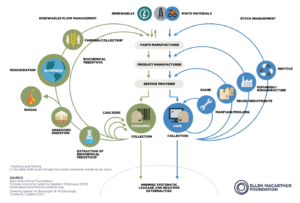More needs to be done to help the NHS with their sustainability targets
16 October 2024
This year’s theme at ReMed was ‘Beyond Disposable: Building a Circular Economy for Medical Devices’ and had a focus on interdisciplinary collaboration. The common theme throughout the conference was the recognition and drive to take practical, immediate actions towards a more circular economy. Despite the willingness of the select stakeholders present, a shared barrier amongst industries was limited sustainability awareness for frontline employees who make daily decisions.
This was especially highlighted by Heidi Barnard, Head of Sustainability for NHS Supply Chain, who said that there are 12,000 people in NHS procurement; however, only 6 of those are in the sustainability team. To combat this, they have made a mandatory training guide for all employees aiming to empower them to consider sustainability more heavily when buying. However, it was noted that this is unlikely to be enough and buy-in also must be gained from frontline nurses and doctors. A mindset change was proposed by Liam Hogg, Head of Net Zero Carbon Waste & Resources and he highlighted the contradictions in healthcare’s ‘waste philosophy’ where it is deemed acceptable to reuse blood pressure cuffs, but single-use tourniquets are common for drawing blood. Reusable tourniquets are commercially available, yet single-use plastic disposable ones are prevalent.
It is possible to change these habits to prevent avoidable waste – the ‘the gloves are off’ campaign has been successful and King’s College Hospital found a 5% reduction in single-use gloves after only 6 months of running the campaign.
Behaviour change alone is not enough to meet the NHS net-zero targets. Technical innovations to reduce the embodied carbon or prevent infectious and clinical waste are needed as these waste streams have a much higher carbon footprint than non-infectious waste, despite only comprising 40% of the NHS waste stream.
What can be done to help with sustainability in the industry and suppliers to the NHS? Recently, Springboard looked into the measures pharmaceutical companies are putting in place to ensure their sustainability targets on are the right track. We conducted the same analysis a year on and have been able to track how they have been doing. While there have been some improvements, more could be done.
At Springboard, each device that we work on has sustainability in mind, from the material selection to the manufacturing processes and location.

Find out how we can help you today.
Written by Kiara Taylor, Springboard Engineer


